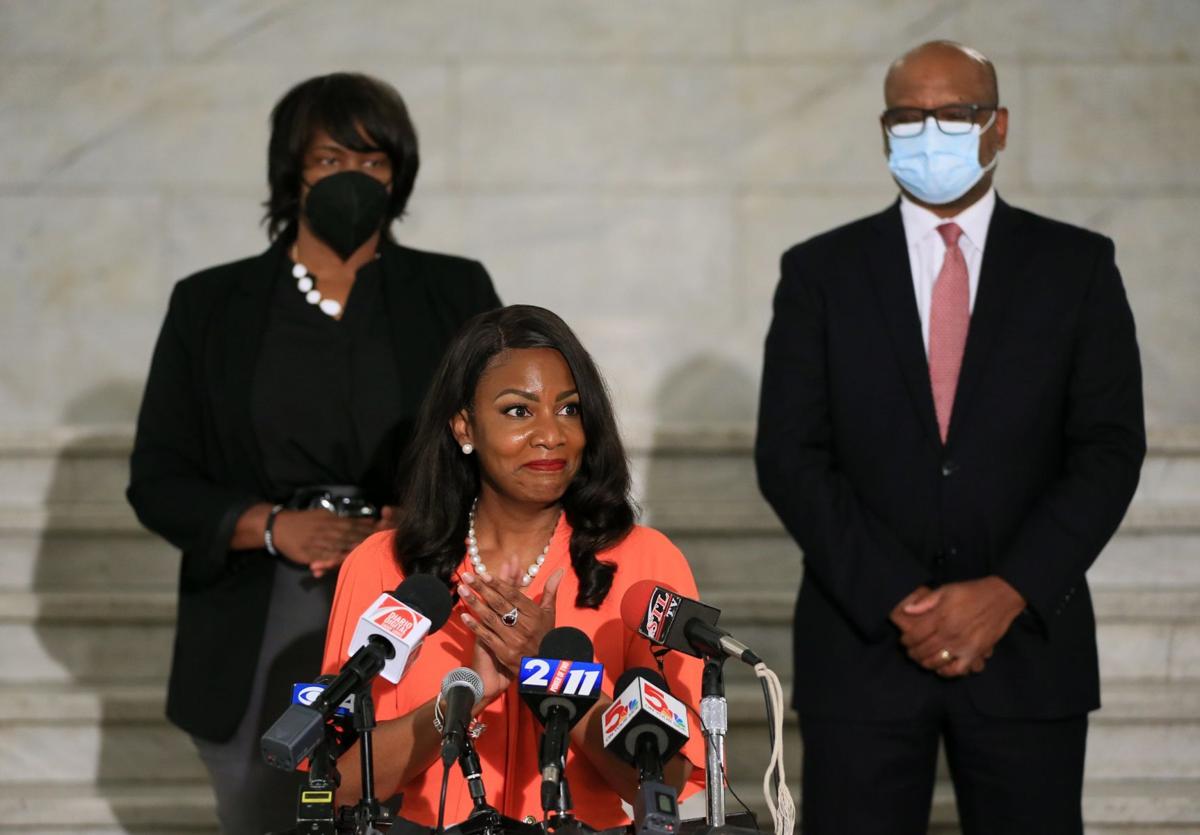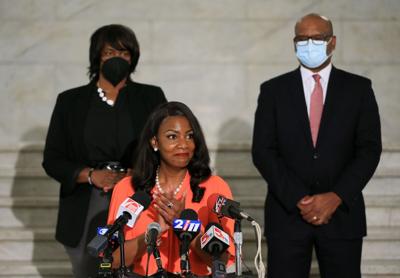Homicides are down this year in ├█č┐┤½├Į.
So far in 2021, according to the ├█č┐┤½├Į Metropolitan Police Department, there have been in the city, a significant drop from the 2020 spike of 263. If the number holds relatively steady in the coming week, it could be the lowest homicide number in five years in ├█č┐┤½├Į.
├█č┐┤½├Į, for one year, anyway, isnŌĆÖt the so-called ŌĆ£murder capitalŌĆØ of America. ItŌĆÖs too early to know whether this yearŌĆÖs positive statistic is a trend or a blip. Is it due to better policing, or ramping up of the Cure Violence program, or is it simply a statistical anomaly? Time, and further study of the data, will tell.
But the drop in homicides comes at an interesting moment. Mayor Tishaura O. Jones, the cityŌĆÖs first Black, female mayor, who ran for office on a platform that included changing the culture of policing, is looking for a new police chief. The current chief, John Hayden, has announced his impending retirement. Hayden was hired by former Mayor Lyda Krewson, after former Chief Sam Dotson resigned on her first day in office.
People are also reading…
It was conventional wisdom in political circles at the time that KrewsonŌĆÖs first choice for chief was Lt. Col. Lawrence OŌĆÖToole. He became acting chief after Krewson and Dotson parted ways. Then came the protests after a judge acquitted former city police Officer Jason Stockley in the killing of a Black motorist, Anthony Lamar Smith. During those protests, OŌĆÖToole ordered a controversial ŌĆ£kettlingŌĆØ technique in which officers corralled and arrested many innocent people, including former Post-Dispatch reporter Mike Faulk. Many of those people, including Faulk, have civil rights lawsuits pending against the city.
├█č┐┤½├Į Post-Dispatch columnists Aisha Sultan and Tony Messenger discuss the inauguration of Mayor Tishaura Jones and the prospects of reduced crime in ├█č┐┤½├Į.
That night, white officers under OŌĆÖTooleŌĆÖs command beat up one of their own, Black police Officer Luther Hall, who was working undercover. Three former officers have been sentenced to prison or probation in federal cases brought as a result of that beating.
Earlier that night, officers under OŌĆÖTooleŌĆÖs command mocked protesters by chanting ŌĆ£Whose streets? Our streets!ŌĆØ OŌĆÖToole didnŌĆÖt become chief. He sued, saying the system discriminated against him because he is white. That lawsuit is pending.
I mention all of this because amid the backdrop of historic, systemic racism in the police department and other parts of the city that got us to this place, OŌĆÖToole is a finalist to become the next police chief. ThatŌĆÖs what my colleague Erin Heffernan reported on Sunday. Make no mistake: Jones doesnŌĆÖt want OŌĆÖToole to become the next chief, and the chance that he will is somewhere near zero. But under the cityŌĆÖs arcane governing procedures, former director of personnel Richard Frank ŌĆö who did not report directly to the mayor ŌĆö arranged an application system so that OŌĆÖToole and another white officer are the two alleged finalists for chief.
Whose chief? Not the mayorŌĆÖs chief!
ItŌĆÖs not a very catchy chant, but itŌĆÖs even worse public policy.
The good news for Jones is that unlike Krewson, sheŌĆÖs not under the same sort of self-imposed pressure to right the sinking police ship, so her search for a new chief, which is taking a similarly long amount of time, can continue as she replaces Frank and works through the city bureaucracy to undo the process that bizarrely led to OŌĆÖToole being a finalist again.
Jones tried to start her search the same way Krewson did, by asking the personnel department to approve a contract with the International Association of Chiefs of Police as a consultant to seek outside candidates. What was a perfectly good process for the white mayor was not approved for the Black mayor.
Perhaps thatŌĆÖs why Frank retired, and members of the Civil Service Commission are now asking questions about the police chief search.
If you have ever struggled to understand the concept of systemic racism, or institutional racism, this is it. A Black mayor who ran for office on changing how the city handles policing, wins election, sees a massive drop in homicides, but isnŌĆÖt allowed to follow the same procedure to pick her chief that the last mayor followed, and a man who became the face of one of the worst years in ├█č┐┤½├Į policing somehow finds himself on the list of finalists.
Like the mayor before her, Jones should have an opportunity to select a chief who shares the vision of policing that voters elected her to carry out.















